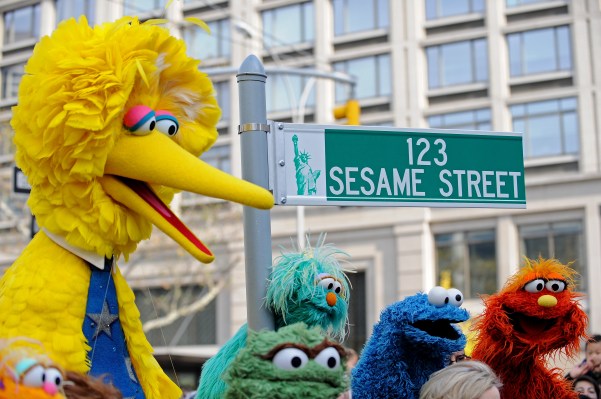Sesame Workshop, the organization that brought to life the beloved Sesame Street and countless other programs, has announced a new venture arm to invest in apps that help children develop. Working jointly with venture capital firm Collaborative Fund (which has funded companies like Lyft and AltSchool), Sesame Workshop has formed a new organization called Collab+Sesame.
Currently, Collab+Sesame has access to a $10 million fund, which is intended to be used for Sesame Workshop’s core mission to “[help] kids grow smarter, stronger and kinder.”
This change comes only a few months after the announcement of Sesame Workshop’s plan to partner with HBO for five years, giving the organization better funding to continue producing top-tier children’s programming. After 45 years of consistent quality, it’s clear that Sesame Workshop wants to evolve with the times and find new outlets to help children develop.
The Nature of the partnership
The funding will be available in increments of up to $1 million, for a minimum of 10 startups backed by the Collab+Sesame venture. In addition to receiving funding, selected entrepreneurs will be paired with mentors from Sesame Workshop’s executive team. These partnerships will help the apps develop in meaningful directions, and will grant entrepreneurs access to Sesame Street characters and branding — a possibly powerful marketing and user-acceptance tool. However, it isn’t mandatory for entrepreneurs to use Sesame Street characters; they are merely available as an additional resource.
Advantages and disadvantages
Like with any venture capital partnership, there are some advantages and disadvantages to this model. For starters, the mentors from Sesame Workshop have nearly five decades of experience working with children and families, lending massive expertise to app development. The possible addition of Sesame Street characters and branding is another potentially lucrative advantage for prospective entrepreneurs. However, there may be some disadvantages that arise from the natural conflict of interest between a non-profit organization and a for-profit app.
Does your app fit the requirements?
Currently, there aren’t many specific requirements for entrepreneurs or apps interested in a chance at the funding. Apps must be in some kind of developmental phase, and must serve a core function of improving childhood development in one of six areas:
- Education and Media. These apps focus on STEM subjects (science, technology, engineering, and math), the development of language and literacy, the use of interactive media or on education for special needs children. Toys and games may also belong to this category.
- Food. Food apps must focus on healthy food and nutrition for children, such as family nutrition programs, apps of healthy food brands and school-meal planning.
- Health and Wellness. Health and wellness apps must focus on children, and may target areas like personal health, exercise, illness prevention and illness management.
- Family Development. Family development tools are focused on helping families function more efficiently, such as finding and providing childcare, aiding the parenting process and connecting people to local and digital communities.
- Educator Tools. Educator tools allow teachers to do more for their students, such as with collaboration apps or access to more data.
- Social and Emotional Development. Social and emotional development apps include apps for ethics development, social development or behavioral feedback modules.
If your app fits one of these categories, you can consider yourself a potential applicant for this program. Working with Sesame Workshop could give your app (and brand) an enormous advantage and, together, you could do a lot of good for the children of the world. If you or your company is interested in applying for the program, read more details and apply here.
